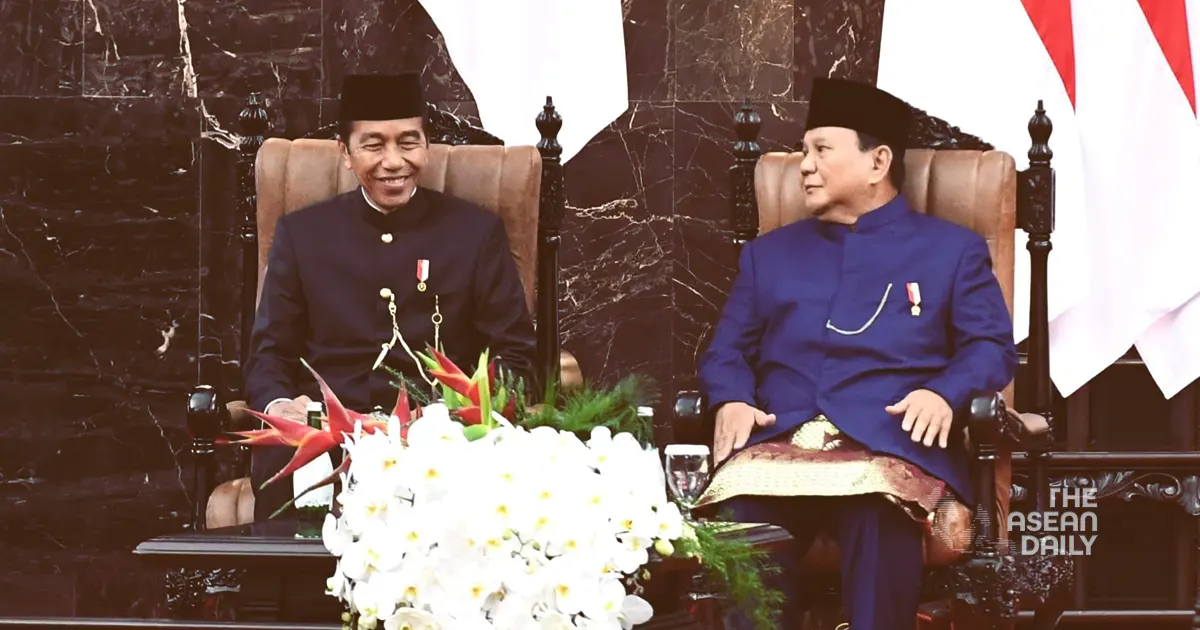20-10-2024 (JAKARTA) Prabowo Subianto was sworn in as Indonesia’s eighth president on October 20th, marking a new chapter in the nation’s political landscape. The 73-year-old former defence minister took his oath of office at the People’s Consultative Assembly (MPR) in Jakarta, alongside his running mate and now Vice-President, Gibran Rakabuming Raka, the 37-year-old son of outgoing President Joko Widodo.

In a compelling inaugural address, President Subianto outlined his vision for Indonesia, emphasising his commitment to serve all citizens, regardless of their political allegiances. “With a full sense of responsibility and with all the strength in our souls and bodies, we will carry out the leadership of Indonesia… by prioritising the interests of all Indonesian people, including those who did not vote for us,” he declared, setting a tone of unity and inclusivity.
The new president acknowledged the economic challenges facing many Indonesians and pledged to improve living standards across the archipelago. A key initiative in this effort is the ambitious free lunch programme, aimed at addressing poverty and stunting in the nation’s most vulnerable communities. With a budget of 71 trillion rupiah (approximately S$6 billion), the programme seeks to provide free meals for all children and pregnant mothers.
Subianto’s economic vision is equally bold, with a target of 8% annual growth, a significant increase from the current 5%. This ambitious goal underscores his administration’s focus on accelerating Indonesia’s economic development and enhancing its global competitiveness.
The inauguration ceremony was attended by a host of international dignitaries, including Singapore’s Prime Minister Lawrence Wong, Malaysia’s Prime Minister Anwar Ibrahim, and Australia’s Deputy Prime Minister Richard Marles. The presence of high-profile guests such as South Korean Prime Minister Han Duck-soo and Chinese Vice-President Han Zheng highlighted Indonesia’s growing importance on the world stage.
Subianto’s ascension to the presidency comes after two previous unsuccessful bids, having run against Joko Widodo in 2014 and 2019. His victory in the February 14th election, where he secured over 58% of the vote, represents a significant shift in Indonesia’s political landscape.
The new president’s foreign policy stance appears to be one of openness and cooperation. “There is a saying. A thousand friends are too few, one enemy is too many. We want to be a best friend of all nations,” Subianto stated, signalling his intention for Indonesia to play a more active role in global affairs.
As Subianto takes the reins of Southeast Asia’s largest economy, expectations are high for continued political stability and economic growth. The transition from Widodo’s administration to Subianto’s is seen as a crucial moment for Indonesia, with hopes that it will further elevate the country’s standing in the international community.
The inauguration also marked a symbolic changing of the guard, with Subianto and Widodo exchanging seats at the front of the hall to applause from attendees. This gesture of unity and continuity was echoed in the streets of Jakarta, where banners reading “Thank you, Jokowi. All the best, Prabowo Gibran” highlighted the public’s optimism for a smooth transition of power.




